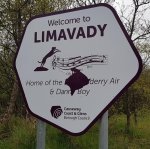Corsaire said:
France is peculiar in that many areas do not seem to have a folky repertoire, or rather, it has become lost over time. I have discussed this with French musical people and they say that it may be due to France being "unified" by Napoleon. French became the national language - use of other languages such as Breton, Norman etc were supressed to the point of being considered illegal. French nationalism was promoted to the detriment of regional customs, music etc. Some areas/regions have kept their original dialect/language going, like Breton, Occitan, Basque - Alsace is peculiar in that it has basculed back and forth between Germany and France.
The Bretons are very keen on their folk music as no doubt are the Basques and those who live in the south-west. Perhaps Paris has kept "French" traditional music going ? I don't know.
So, John, I'm not sure I have any idea of what the French would consider to be their most popular folk song. They would be in complete agreement. After all, as de Gaulle is reported to have said "How do you govern a country which has 246 different varieties of cheese ?"
Sally,
The Germans allow people around the area of Flensborg/Flensburg to be educated in either Danish or German schools, and there is no "bar" to use of the Danish language. I do believe that German is required to be taught as a secondary language, but there isn't a lot of red tape.
First time I was in Brittany I was very keen to hear Breton being spoken. When I actually heard it (on the radio) I couldn't tell if they were speaking French or Breton, as a lot of the sounds were identical. When you consider that here in Scotland Gaelic sounds nothing like English and native Gaelic speakers have a distinct English accent when they speak in that tongue, I felt that the Bretons had been shortchanged somehow.
From what I've heard of the French version of Catalan, there is also no mistaking that the speaker is French. Did Napoleon maybe decree that regional languages had to be spoken with a "standard" French pronunciation, as that's what it sounds like to we foreigners. Alsatian does have a German ring to it, but even Ch'ti like De Gaulle, so proud of their "separate" status, all tend to sound as though they are just practising another language with strong French accents.
Even Basques have Spanish or French sounding accents depending on which side of the border they live. Whilst that is not in itself unusual, the oldies chastise the kids for sounding too French or Spanish.
I would say that these days we're all gradually moving towards less distinctive regional speech, and the minority languages are struggling to maintain a foothold.
I haven't lived in the Glasgow area for 45 years. Most older people here in the Borders can identify me as a "west coaster", but the youngsters often haven't a clue where I'm from. They know I'm not local, but that's about the size of it. The Hawick accent is basically Scottish with a smattering of northern English words, but these days the kids are deliberately trying to sound as though they are big city Glasgow or Edinburgh types, and the "alien" north of England words are dying out.
"Ee ken, mye gairden yince haid thry trys, bit mah fither hoyed yin doon, so oor jist left wi' the tway". If you could say that perfectly they knew you were a local. Personally, I never bothered, same as the local youngsters. "Fowk these dyes jist caw spike guid Inglish" (as they say in Hawick).

